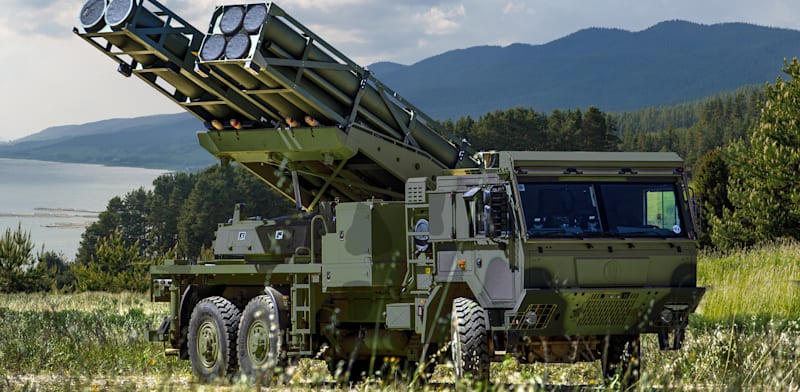A few months ago, in the wake of the fatal collision between a US Army helicopter and a passenger jet, I wrote why the Federal Aviation Administration (FAA) has severely compromised air safety because as a government agency, it cannot effectively engage in economic calculation. The recent closures at Newark International Airport in New Jersey due to air controller equipment malfunctions only highlights the problems we are seeing in the ATC towers.
The Newark situation especially seems to be intolerable:
One air traffic controller (ATC) and a trainee will operate every flight in and out of Newark between 6.30pm-9.30pm — despite 15 staffers being the standard requirement for a shift.
Moreover, the situation is one that is not going to be subject to any quick fix, given that air traffic controllers are working with obsolete equipment and a chaotic organization:
A communications system reliant on floppy disks and copper wires. Radars operated with a remote line described as “a long extension cord.” Multiple air traffic controllers on trauma leave to recover from the stress of technical failures that caused them to lose contact with planes. And the closure of a runway for construction.
However, the Federal Aviation Administration promises that—after one failure after another—somehow it is going to find a way to “rebuild” the system at Newark:
On Thursday, the US Department of Transportation announced a three-year-plan to build a “brand-new air traffic control system” by 2028. The plan will replace “core” infrastructure, including radar, software, hardware and telecommunications networks, as well as the copper wiring that failed, impacting flights at Newark, according to Transportation Secretary Sean Duffy.
If this latest promise is reminiscent of so many other goals the federal government sets—and fails to meet—that is because everyone knows that in three years, the situation at Newark and in the rest of the country is not going to change much for the better. The problem with the FAA is not a lack of political will or the failure of Congress to fund the system. Rather, the problem is that a government agency oversees air traffic control (ATC) instead of private enterprise.
The typical objection to permitting this vital job to be performed by a profit-seeking business is that private firms would compromise safety in the name of profitability. Two congressional Democrats wrote that allowing private enterprise to run the system would “would tear apart the FAA and jeopardize aviation safety by leaving its remaining critical safety oversight and certification functions reliant on general fund appropriations and vulnerable to future budget cuts, sequestration and government shutdowns.” Business leaders also have objected, claiming that the present system “is the world’s largest, safest, most efficient, and most diverse system.”
The former chairman of the National Transportation Safety Board, Bruce Landsberg, recently opined in Newsweek that there is nothing wrong with the present system:
The US air traffic control system is without a doubt the world’s best. It handles more types of traffic, in more airspace and in higher density than all the systems I have just mentioned combined. And we have—by a wide margin—the safest, most efficient and most diverse air traffic system in the world. There is no other nation, or region, that is even close.
Yet, as John Tierney recently pointed out:
The problems were obvious 20 years ago, when I visited control towers in both Canada and the United States. The Canadians sat in front of sleek computer screens that instantly handled tasks like transferring the oversight of a plane from one controller to another. The Americans were still using pieces of paper called flight strips. After a plane took off, the controller in charge of the local airspace had to carry that plane’s flight strip over to the desk of the controller overseeing the regional airspace. It felt like going back in time from a modern newsroom into a scene from The Front Page.
It was bad enough to see such outdated technology in 2005. But they’re still using those paper flight strips in American towers, and the Federal Aviation Administration’s modernization plans have been delayed so many times that the strips aren’t due to be phased out until 2032. The rest of the system is similarly archaic. The US is way behind Europe in using satellites to guide and monitor planes, forcing pilots and controllers to rely on much less precise readings from radio beacons and ground-based radar.
Like other supporters of the FAA, Landsberg continues to promote the fiction that the FAA is accountable to the “voting public” and that all we need is a technology fix:
The good news is the path to technology and efficiency improvements is clear—and it does not require a structural change. A broad coalition of US aviation participants have been urging Congress to pursue meaningful solutions to challenges in the system by giving the Federal Aviation Administration greater flexibility and funding to invest in system upgrades and more staffing. This can easily be done while still maintaining its essential accountability to the voting public.
In other words, all it takes is for Congress to vote in more appropriations and “improve” its so-called oversight. But that raises the question as to why these things haven’t been done in the first place and why we are supposed to believe that one day in the future the FAA suddenly will do what it hasn’t been doing for decades: provide air traffic controllers with the tools they need to do their jobs, as opposed to having them rely on old, unstable technologies.
The defenders of the status quo assume that the only difference between socialist ATC and ATC being performed by a private firm is that private firms will obsess with making profits at the expense of safety while socialist entities are not burdened with such constraints. Yet, as we saw from the experience with socialism in the old Soviet Union and its Eastern European satellites, socialist systems operated in time warps.
When I went to East Berlin in 1982, it was like stepping back in time, especially comparing the place to its West Berlin counterpart. When the Iron Curtain fell around 1990, it was painfully obvious that the old Soviet Bloc still resembled the world of the late 1940s.
As I pointed out in my previous article on the FAA, the difference lies in capital, something that is noted in the earlier references above. The US air traffic controllers must depend upon old, outdated technology, making the airport towers our own version of the time warps of the old socialist nations. Since socialist systems have no way to calculate the economic value of their capital, they tend to be undercapitalized. For example, the Government Accounting Office recently reported that the Internal Revenue Service operates with outdated equipment that puts the entire system at risk, and another GAO report said that the entire federal government is shackled by obsolete technologies.
The problem is systematic and not due to a lack of political will; these issues are baked into socialist systems. When defenders of the present system claim making it private will eliminate “congressional oversight,” one should remember that few of these vaunted overseers know anything about ATC, with “oversight” mainly being members of Congress grandstanding at congressional hearings. So-called oversight really is about scoring political points, not developing an efficient and safe ATC system.
But why should private, for-profit firms perform the ATC duties? These are the only entities that can truly determine the value of capital through economic calculation. These firms do not purchase capital because a certain device is made in the district or state of a powerful member of Congress or for other political reasons. Instead, they make capital investments that make their own systems more efficient, less costly, and more profitable.
Under socialism, cars made in East Germany in 1988 looked and performed very much like cars made there in 1948. Likewise, we see little change in US ATC systems over the years. This is not an accident or the result of failure of congressional oversight. It simply is how socialist systems always work and always will work because they are based upon political calculation instead of economic calculation.
One could have made the same claims about building cars as promoting air traffic control systems. We could have “congressional oversight” in designing and building cars with Congress holding the purse strings for building new assembly lines. It does not take much imagination to know that we would not have had the high-performance autos had the production of cars been given to an agency like the FAA. (And it can be argued that the government’s regulatory regime has stifled auto development, making cars less safe and less efficient than they would have been without regulation).
If we wish to improve air safety and improve prospects for air travel, the FAA should be abolished, and ATC systems be turned over to private enterprise. The reasons for not doing so are self-serving and reflect a desire not to disturb the status quo, as bad as things might be. Unfortunately, the status quo is winning and future air travelers who will die or be seriously injured in preventable plane crashes will be the victims.





























